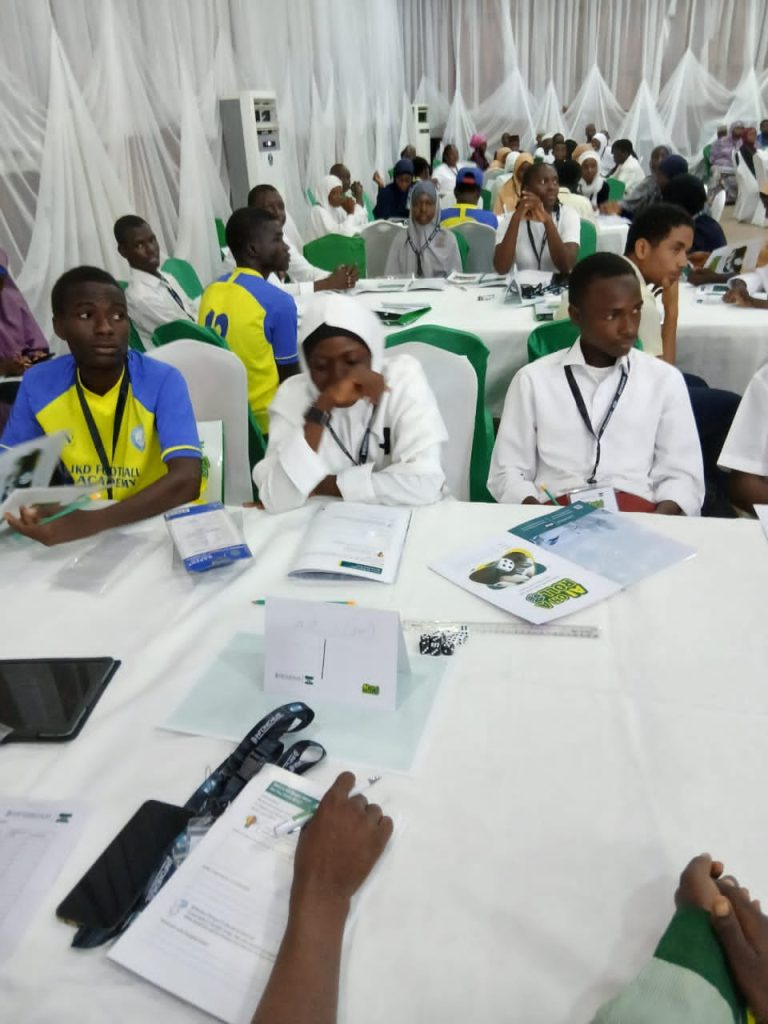Adamu Yusuf
A non-government organization, AMA Foundation, has organised a one-day Artificial Intelligence AI workshop for secondary school students in Kaduna, aimed at raising awareness and building foundational digital skills among young Nigerians.
The event took place at the historic Arewa House and drew participants from various public schools across the state.
NITDA Inspires Students with Hands-On Tour of AI, Robotics Centre
The workshop focused on delivering a low-tech introduction to AI, forming part of a broader initiative to close the digital divide between Nigeria and the rest of the world, as well as among underserved communities within the country.
According to the Executive Director of AMA Foundation, Aisha Yusuf Mamman, students from public institutions often face significant challenges in accessing quality education. With the world rapidly advancing in technology, especially in artificial intelligence.
Aisha Yusuf Mamman noted that AI has the potential to close this educational gap.
Microsoft Pledges $1 Million Investment to Boost Nigeria’s AI
The workshop, she explained, was designed to introduce students to the possibilities offered by AI, spark their interest, and prepare them for a tech-driven future.
Aisha Yusuf Mamman added that a stakeholder roundtable would follow the next day, bringing together key players in the education sector to foster collaboration and ensure that students, particularly from underserved backgrounds, have access to AI tools, mentorship, and learning opportunities.
The long-term goal, she emphasized, is to unlock students’ potential through access to training, grants, and support that can turn their ideas into practical impact.
One of the facilitators, Sarah Bello, explained that the workshop targeted both connected and offline communities.
Using simple tools such as dice, students were introduced to basic machine-learning concepts in a fun and relatable way.
The objective was to show that understanding AI does not require expensive or complex infrastructure, and that early exposure prepares students to embrace digital tools as access improves.
A key Speaker at the event, Assistant Professor of Software Engineering, American University of Nigeria, Dr. Zainab Shamsiyya Usman noted that she was contacted by the founder of the initiative, who expressed concern about Nigeria falling behind in technology.
In response, a team of professionals was brought together to inspire and educate students on the significance of AI.
She explained that the goal was to raise awareness early and help students understand how AI is reshaping every sector worldwide.
With many traditional jobs being replaced by automation, young Nigerians must be equipped to adapt, innovate, and remain competitive.
During her lecture, the
Chief Executive Officer,
Education Information Nexus initiative Dr Fatima Zarah Bello demonstrated real-world AI tools and discussed their applications in career development, entrepreneurship, and problem-solving. From automating tasks to increasing productivity, AI, she said, is already playing a vital role across industries.
She emphasized the importance of Nigeria bridging the global digital divide by preparing students now before it’s too late.
The programme also included a roundtable with education stakeholders, discussing how AI literacy can be incorporated into the national curriculum through subjects like Civic Education and Computer Studies.
Participants expressed enthusiasm over the practical and engaging nature of the sessions.
At the end of the workshop, a shared consensus emerged on the need for sustained collaboration between government, educational institutions, and private organizations to ensure Nigerian students are fully prepared for the AI-driven future.





